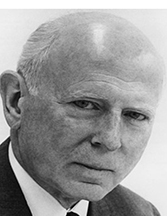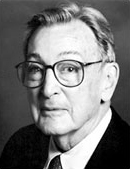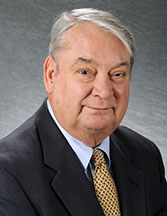Albert Lasker Basic Medical Research Award
William Frederick Windle, awarded 1968

William Frederick Windle, PhD, received his PhD from Northwestern University Medical School in 1926 working with Stephen Walter Ranson, MD, PhD. His independent studies centered on the development of the central nervous system, and in 1942 he succeeded Ranson as Director of the Institute of Neurology. Windle held subsequent appointments at the University of Washington, University of Pennsylvania, the National Institutes of Health, and New York University before he retired, and founded the journal Experimental Neurology in 1959. His 1968 Lasker Award was related to his work on neonatal asphyxiation and brain damage leading to cerebral palsy and mental retardation in infancy.
Robert F. Furchgott, awarded 1996

Robert Furchgott, PhD ’40, received the Nobel Prize in Physiology or Medicine in 1998, which he shared with Louis J. Ignarro and Ferid Murad for “their discoveries concerning nitric oxide as a signaling molecule.” Furchgott’s discoveries have helped scientists understand and find new treatments for cardiovascular diseases and other conditions ranging from immune disorders to memory loss, pulmonary disease and erectile dysfunction.
Ferid Murad, awarded 1996

Ferid Murad, MD, PhD, Robert F. Furchgott and Louis J. Ignarro shared the 1998 Nobel Prize in Physiology or Medicine. Murad's discoveries helped scientists understand and find new treatments for cardiovascular diseases and other conditions ranging from immune disorders to memory loss, pulmonary disease and erectile dysfunction. From 1988-1998, he was an adjunct faculty member in Pharmacology and Cell & Developmental Biology.
Thomas E. Starzl, awarded 2012

Thomas E. Starzl, MD '52, PhD '52, and faculty member at Northwestern (1959-61), known as the father of transplantation, performed the first successful liver transplant in 1967 at the University of Colorado. Starzl also conducted the first multiple organ transplant in 1983, the first heart and liver transplant in 1984 and the first liver and intestine transplant in 1990. In 1980, he introduced the anti-rejection medications anti-lymphocyte globulin and cyclosporine. He was instrumental in developing tacrolimus, a drug that significantly increased post-transplantation survival rates.